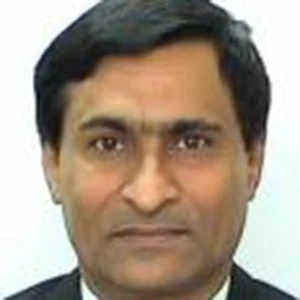 Pupils from the KDEC Primary School at Masorie, Kambia District in the North-West Region of Sierra Leone. Credit : Moses Alex Kargbo / World Bank.
Pupils from the KDEC Primary School at Masorie, Kambia District in the North-West Region of Sierra Leone. Credit : Moses Alex Kargbo / World Bank.
In the quest to bolster its education system, a transformative wave is sweeping through Sierra Leonean classrooms, reshaping the educational landscape with a singular focus: early grade literacy. This isn't just another educational reform; it's a lifeline to academic success and lifelong learning, a beacon of hope for a generation poised on the cusp of greatness. With only 4.2% of Sierra Leonean children able to read a simple text by age 10, the urgency to act is real, and the nation – through the Ministry of Basic and Senior Secondary Education (MBSSE) and its partners – is responding with candor.
The Ministry is steering this educational resurgence with a clear vision and unwavering commitment. In collaboration with the Teaching Service Commission (TSC), the Ministry is pioneering the Foundational Learning Programs for Literacy and Numeracy, a bold initiative to rekindle the minds of young learners and equip them with the tools of language and numbers.
What is the intervention?
The Literacy package for Primary 1 (6 years old) and Primary 2 (7 years old) (P1&P2), supported through financing and Technical Assistance from the World Bank (FREE Education Project and the Accelerator Program), and the Numeracy package for Primary 1 to Primary 4 (P1-P4), championed by the Global Partnership in Education (GPE)/UNICEF, are more than just programs—they are lifelines thrown to the future of the nation. The intervention is a unique collaboration and innovation, with the National Technical Literacy Team, coordinated by the TSC and the Ministry, crafting a suite of educational materials guided by best practices and international expertise.
The TSC, in partnership with the Ministry and the World Bank, developed a training program for 8,037 P1 teachers. The program aimed to equip teachers with the necessary content and pedagogical knowledge and skills to dramatically improve literacy for all pupils.
 Teacher and pupils in the classroom, KDEC Primary School at Masorie, Kambia District in the North-West Region of Sierra Leone. Credit : Moses Alex Kargbo / World Bank
Teacher and pupils in the classroom, KDEC Primary School at Masorie, Kambia District in the North-West Region of Sierra Leone. Credit : Moses Alex Kargbo / World Bank
What is the objective?
Imagine a classroom where every P1 pupil is armed with a new Textbook and Workbook, where every teacher is guided by a comprehensive Teacher Guide, and where Thematic Posters adorn the walls, sparking curiosity and imagination. This is the new reality for Sierra Leone's youngest learners, a reality where learning is both a journey and a joy.
The training program for teachers is a testament to the Ministry's resolve to turn the tide on literacy. These educators are the architects of the future, and the program is their blueprint, designed to instill content mastery and pedagogical finesse. The objective was to empower teachers to deliver systematic phonics instruction, to breathe life into model lesson plans, to manage teaching time, to conduct formative evaluations with insight, and to uplift pupils with unique learning needs.
What are the expected results?
The expected results are nothing short of revolutionary. Every P1 teacher will emerge from the training equipped to teach reading, writing, and oral language with a newfound confidence and competence. The phonics and explicit pedagogy at the heart of the program promise to unlock the basic literacy skills in every pupil: oral language, blending fluency, and comprehension.
This journey began with the training of 30 Master Trainers in the principles of literacy foundational learning, and all literacy materials were piloted in 40 schools. By August this year, the district level training progressed to deliver the training of about 8,000 P1 teachers. The training was immersive and hands-on, with a series of practical workshops where demonstrations, modeling, and simulations brought the lesson plans to life.
All participant teachers were given the opportunity to simulate in front of their colleagues the instruction steps and receive comments for improvement. Evaluation methods, such as pre- and post-tests, classroom observations, and feedback sessions, were used to measure the effectiveness of the program. In the end, each teacher received training materials, including textbooks, workbooks, and teachers' guides to support the implementation of the new pedagogical approaches in the classroom. These materials will become the tools with which they sculpt the minds of their pupils.
The Ministry and the TSC are convinced that the training program for P1 teachers in literacy will be the cornerstone of a new era in foundational learning and literacy outcomes for all of Sierra Leone's young learners. By investing in the professional development of teachers, the initiative bridges the gap in early literacy instruction and set a strong foundation for lifelong learning success. Through targeted training and support, teachers will be better equipped to nurture all students' literacy skills and foster a culture of reading and writing in Sierra Leonean classrooms.
As the education community rallies behind this cause, it is united in a singular chorus: "Literacy for All pupils: Yes, we can!" This is more than just a slogan; it's a promise, a declaration of a future where every child in Sierra Leone can unlock the power of words and numbers, and with them, their boundless potential.


Join the Conversation